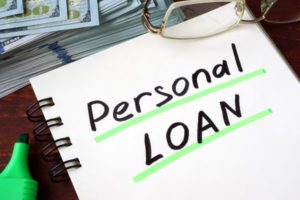Although credit may be available to many consumers in the form of credit cards, lines of credit, installment loans, home equity loans, etc., some individuals must rely on personal loans when necessary because of issues with their credit rating and the inability to obtain credit.
In context, a personal loan is any loan made to a bankruptcy debtor personally by persons with whom the debtor has a personal relationship. Thus, these loans may involve parents, siblings, friends, and partners or significant others. Because personal loans involve close family and friends, they typically require special considerations, thus presenting unique problems for anyone considering bankruptcy.
Personal loans are typically unsecured, which makes them dischargeable in bankruptcy. Any debtor who is planning on filing bankruptcy who owes a debt to a family member or friend must realize that this obligation will be eliminated and discharged in the bankruptcy case.
While debtors have no choice but to schedule and discharge a personal loan debt in a Chapter 7 bankruptcy case, they have a choice and may repay a personal loan in a Chapter 13 bankruptcy case. Chapter 13 plans may designate different classes of unsecured claims as long as the plan does not unfairly discriminate against the different classes.
This is a complicated process and requires the assistance of a bankruptcy attorney experienced in filing Chapter 13 cases like Theron Morrison and any of the attorneys at the Morrison Law Group. Thus, a personal loan may be repaid in the Chapter 13 repayment plan, provided that the plan does not unfairly discriminate and the family member or friend who is a creditor of the debtor files a proof of claim as evidence of the debt.
Often, bankruptcy debtors wrongly believe they can pick and choose which debts to discharge in bankruptcy. Thus, any money borrowed from parents. Friends. Siblings. or any other person must be disclosed and listed on the debtor’s bankruptcy schedules.
Bankruptcy debtors must keep in mind that simply because a personal loan is discharged in a bankruptcy case does not mean that the loan may not still be voluntarily repaid later after the completion of the bankruptcy case.
Debtors who withhold information about a debt will encounter problems during or after their bankruptcy case. This is a violation of the oath that each debtor takes about the truthfulness of the information contained in their bankruptcy documents. By committing this violation, debtors commit perjury, which is a serious offense.
Also, the debt that the debtor fails to list may be the subject of a future lawsuit where the person who was never repaid decides to sue the debtor. If this debt is not disclosed on a debtor’s bankruptcy schedules, a creditor may legally assert that the debt was not discharged in the bankruptcy case and sue the debtor for breach of contract. Typically, in this situation, creditors prevail.
Theron Morrison and the attorneys at the Morrison Law Group have helped 8,000 people file bankruptcy and gain a fresh start. We have helped over 20,000 Utah residents deal with all types of financial difficulties caused by all types of events. Talk to the Morrison Law Group about your Chapter 7 or Chapter 13 bankruptcy options. Call 801.456.9933 today to schedule a FREE consultation. We have locations in Ogden, Logan, Sandy, and St. George to serve the residents of the counties of Weber, Cache, Salt Lake, Utah, Morgan, Davis, Washington, and surrounding areas.



